MUSIC FOR THE ARTS TOWER
Sheffield 17 March 2023
Music for the Arts Tower was a performative event and programme of music designed specifically to take advantage of the wonderful spaces and acoustics offered up by Sheffield’s iconic modernist build. It was created and curated in collaboration with Sheffield-based collective of composers Platform 4 and was the outcome of a Knowledge Exchange project called “Music for Unconventional Spaces” which explored the composition and performance of original works in locations other than music venues and concert halls. All the music was performed by an ensemble of 30 performers including members of Sheffield COMA, the New Music Ensemble, TUOS Music Department and Juxtavoices. The event was programmed as a part of Classical Sheffield Weekend 2023.
In the first part of the concert the paternoster lift provided an hypnotic spectacle (like a visual Shepard tone of sorts) while the lift was used as a stage for original pieces written by Platform 4. The audience was divided across the first 12 floors of the building and musicians played in the cabins of the lift. This setup had been used already by Platform 4 for their performance of In C in 2018, allowing for a maximum of 2 musicians to be visible at one time and their individual sounds to fade in and out of focus at the cycle rate of the paternoster.
In the interval the audience made their way down to the Ground and Lower Ground floor, where the second part of the concert took place. Here both public and musicians were able to explore the space and move around more freely; for some of the pieces musicians played on the stairs, parading around the atrium, and position themselves across the Basement, Lower Ground, Ground and Mezzanine floors. Although each composer contributed individual pieces to the programme, the concert was conceived as a whole, with pieces overlapping and echoing each other.

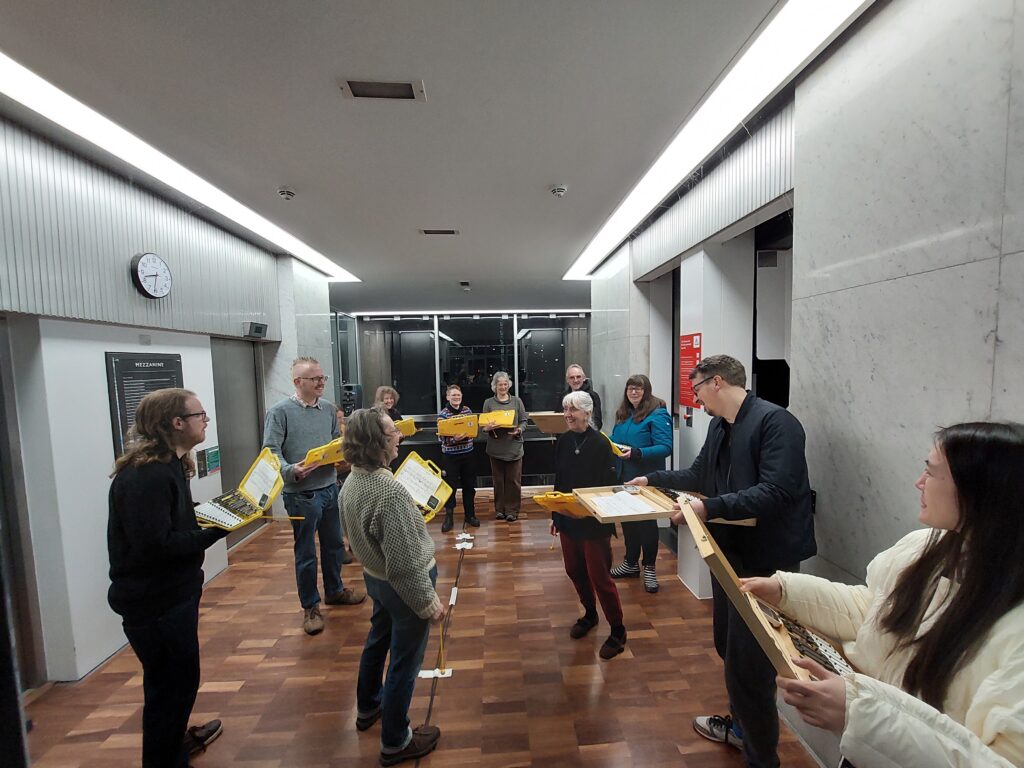
In the electroacoustic piece “Paternoster Loop” the cyclical movement of the paternoster was used as a holding mechanism for the whole concert. Since a cabin of the lift takes roughly 8min and 36seconds to complete a full cycle of the building, the paternoster was re-imagined as a sound-on-sound loop of the same duration upon which pieces and field recordings were accumulated. The idea was inspired by reading Heinrich Böll short story Murke’s Collected Silences (1958), where a paternoster lift and audio tape both feature in the narrative as Dr Murke’s objects of obsession induced by the dissatisfaction with his career as a radio producer.
Ahead of the concert, the loop started with a single layer of material pieced together from location recordings of the Arts Tower, particularly featuring recordings of vertical movement within the building (lifts, lobbies and staircases). This was diffused at the entrance of the building where the audience waited to be taken to their assigned floors. As Platform 4’s composition were played, they also were superimposed onto the loop as additional layers. Because of the absence of a static stage, it was impossible to capture and record the pieces live so instead I used recordings from practice sessions and rehearsals to create a similar effect. The loop was spatialised and processed live through a 9-channel system of loudspeakers. In this way the same material kept appearing at the regular 8’36” interval in different parts of the building, whilst the overall loop grew in density and volume. The final dense “Paternoster Loop” soundscape was left playing at the end of the concert as people left the building.
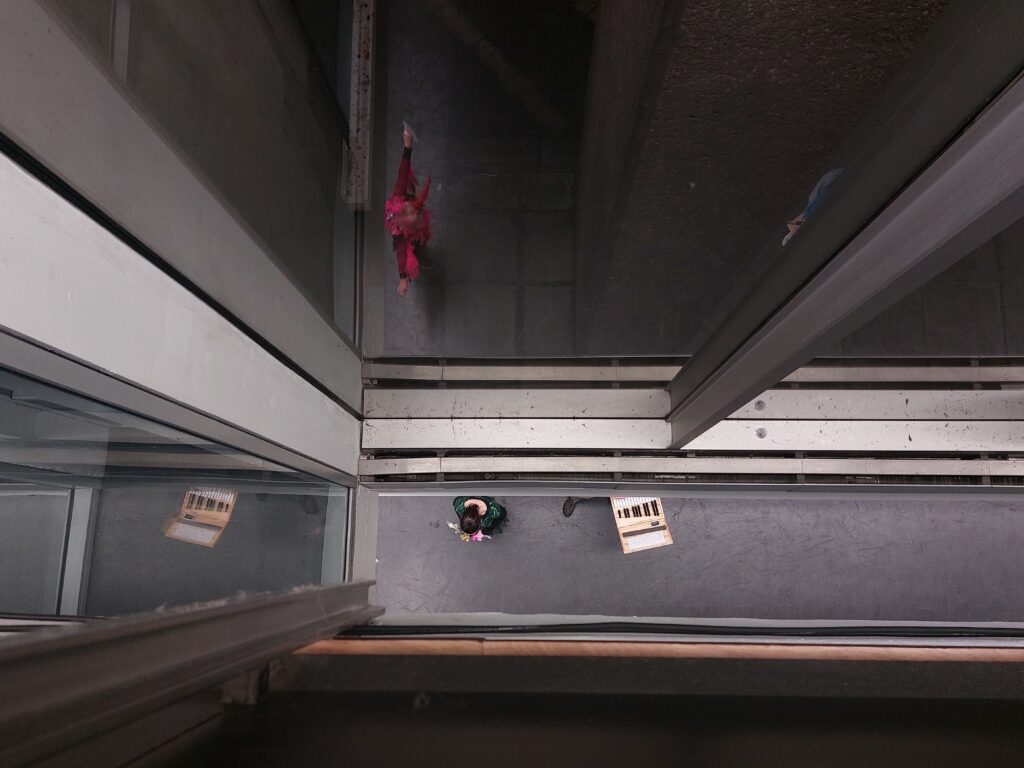
view from the Mezzanine floor
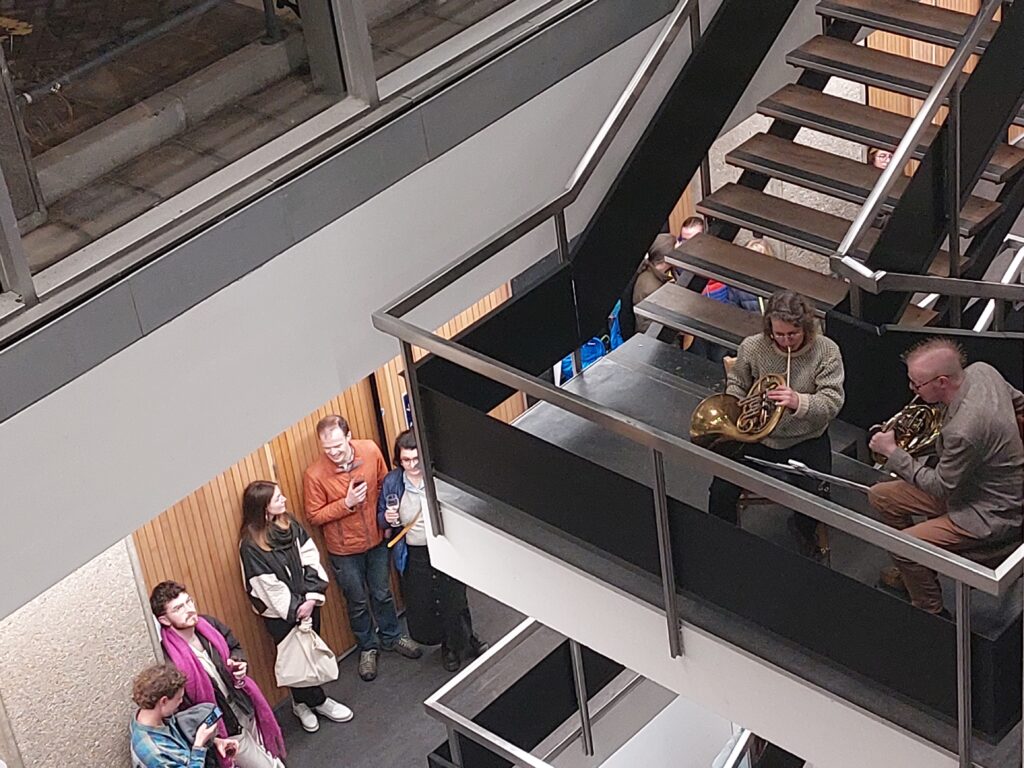
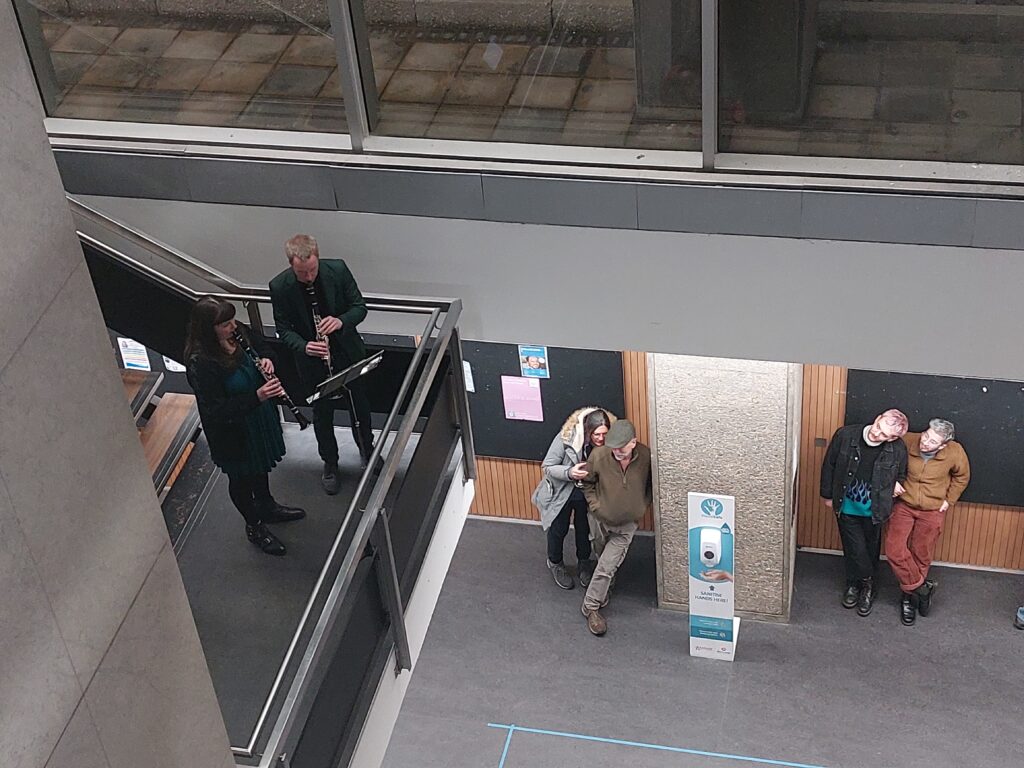
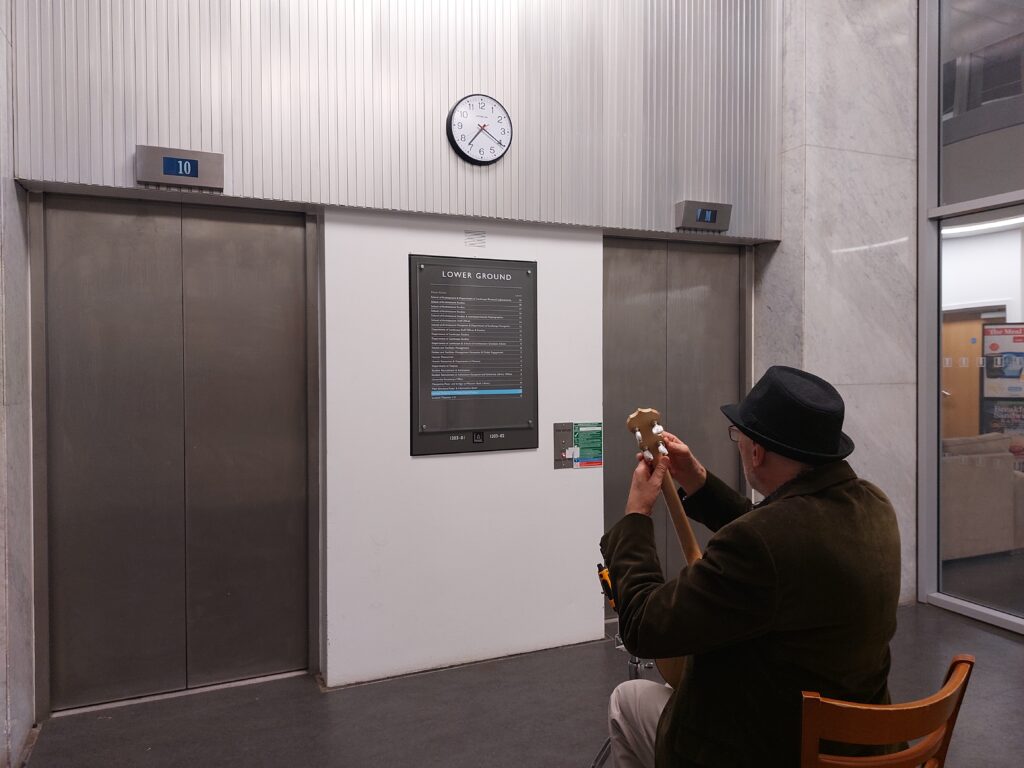
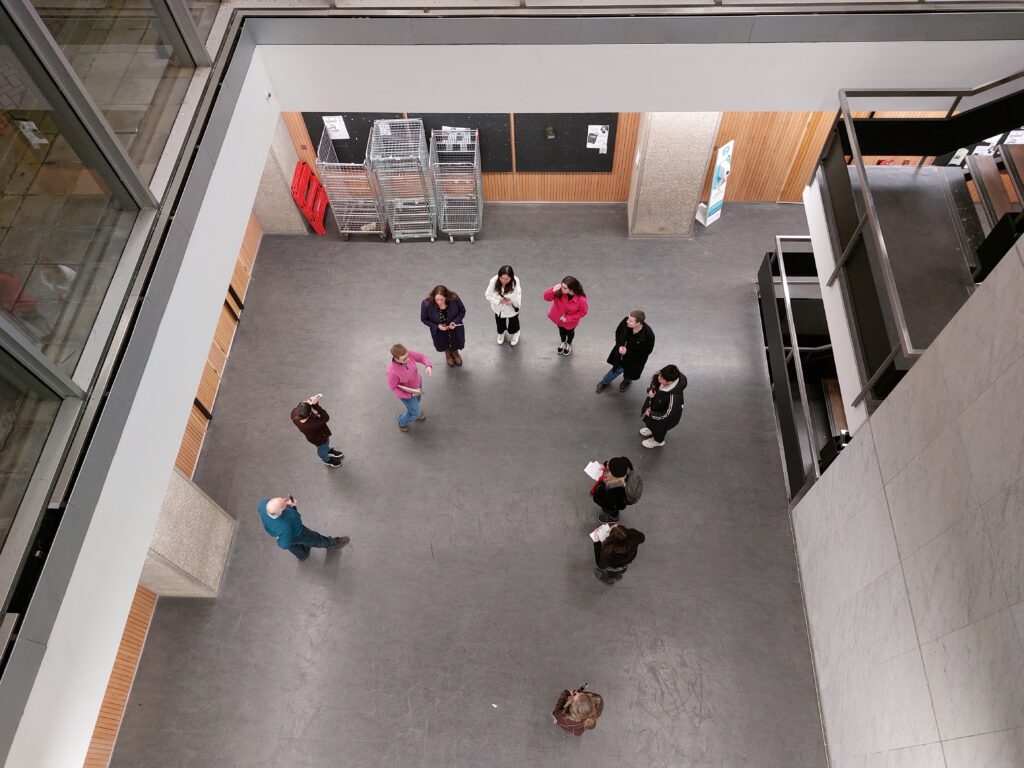
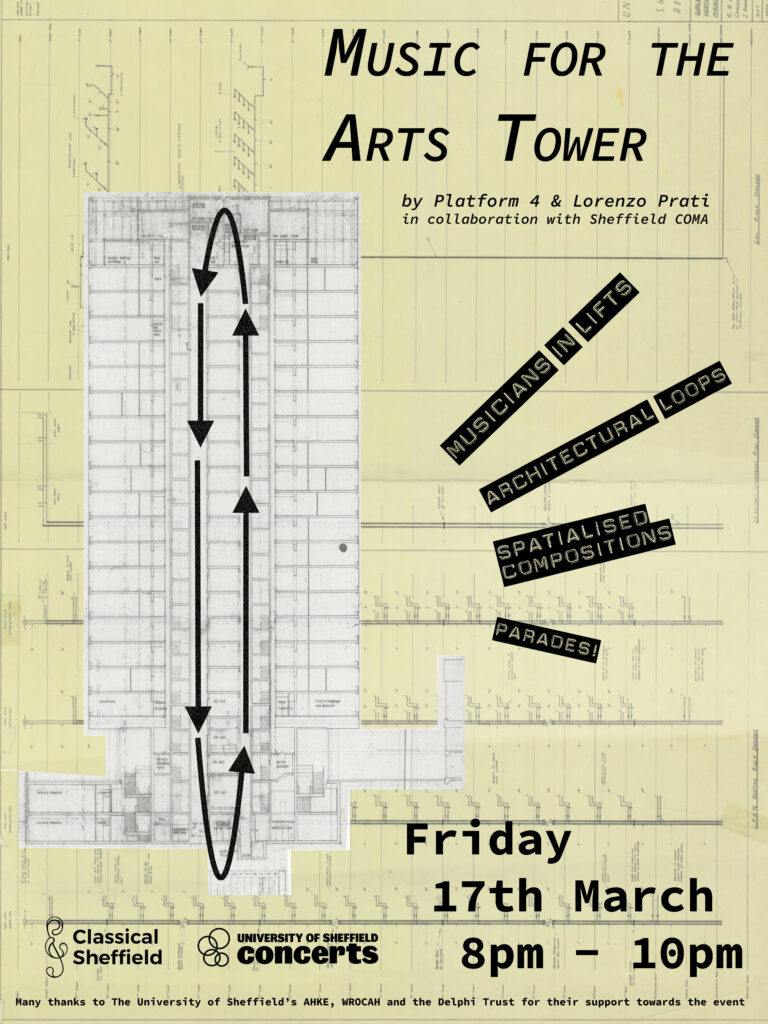
The making of the event was kindly supported by The University of Sheffield’s AHKE, WRoCAH and the Delphi Trust.